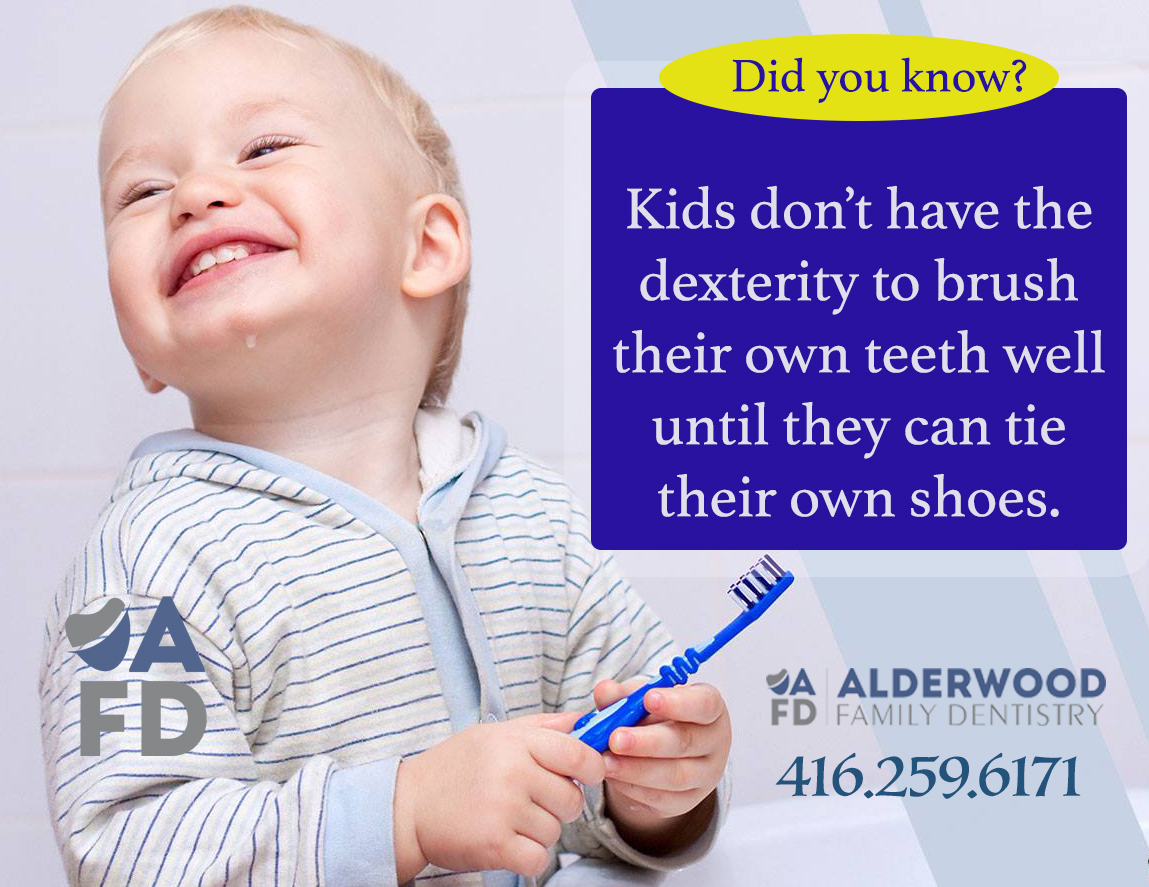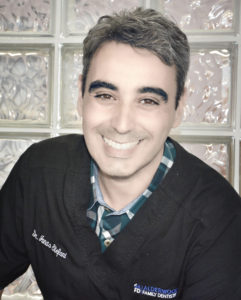April 2018 Newsletter

By Alderwood Family Dentistry • March 31, 2018
Happy Easter/Passover everyone!
Dr. Jonas here to bring some news in this April newsletter.
I hope you are enjoying our tips, and feel free to request any topic that you want to see on future newsletters.
I will talk about kid’s oral health this month.
As you may have noticed, our office is receiving more and more kids. Many of them are being referred by professional colleagues of mine because they do not feel comfortable treating children.
At Alderwood Family Dentistry we care for the whole family, and I must confess that I really enjoy seeing the kids and showing them how dentistry can be fun!
So, if you know anyone who is looking for a dentist for their kids, we are here for them!
Many parents come to me and ask when they should bring their kids for their first visit, or why is my kid getting so many cavities despite the fact that we are brushing regularly.
Sometimes I feel that parents feel even embarrassed or have the sensation of being a bad parent because their kids have cavities. I can assure you – it is
not your fault!
Unfortunately, tooth decay is still a high prevalence disease in Canada. According to the National Children’s Oral Health Foundation, it is estimated that over 40% of kids will have cavities before kindergarten!
What worried me the most is that almost no one is aware that dental caries is CONTAGIOUS!
Yes, you read it right. One person can easily transmit caries to someone else.
How?
Caries is a disease caused by, what I like to call, “bacteria poop”. Minutes after you brush, bacteria start to clog together forming what we call biofilm, which will form the famous plaque – that little whitefilm thing that comes off when we brush. Once we have the formation of biofilm/plaque cavities can develop depending on diet and how acidic is the mouth environment. The more bacteria “poop” is produced, the more acidic the oral environment becomes – and this acidity can cause the enamel to decay.
Some people have genetics on their side, and the saliva that they produce is strong enough to counteract all this acidity. Other people are not so fortunate. That explains why some will develop cavities and others will not.
How can you prevent tooth decay in your kid?
Consuming too many sugary drinks and snacks can cause tooth decay. For this reason, you should limit the amount of sugary beverages your child drinks to avoid prolonged exposure of the liquid to teeth. These beverages include soft drinks or sweetened fruit juice. If you give your child a sippy cup for long periods of time, fill it only with water, and don’t allow him or her to take it to bed. When your child begins eating solid foods, you should limit the amount of sugary or starchy snacks, especially food that can get stuck on or between teeth. Your child should avoid, or sparingly consume, cookies, cakes, candy and gum.
How can I protect my child’s oral health at home?
• Clean your infant’s gums with a clean, damp cloth after each feeding.
• Monitor excessive sucking of pacifiers, fingers and thumbs to avoid teeth
misalignment.
• Encourage your child to drink tap or fountain water. If you buy bottled water, make sure that it is fluoridated. Fluoride makes the entire tooth structure more
resistant to decay and promotes remineralization.
• As soon as your child’s first teeth come in, begin brushing them with a small, soft-bristled toothbrush and water. If you are considering using toothpaste before your child’s second birthday, be sure to ask your dentist first.
• When your child is old enough, encourage him or her to brush to build self-confidence.
Always monitor your child’s brushing technique and thoroughness.
When should my child see you for the first time?
The ideal time for a first dental visit is six months after your child’s first tooth erupts, or by his or her first birthday. After the first visit, we will schedule your kid to see us every six months.
How do I prepare for this first visit?
Talk with your child about what to expect and plan a course of action for any possible reaction your child may have. Also, bring records of your child’s complete
medical history for his or her dental file. Our first visit is more a “tour visit” than anything else. Usually, I show the kid the office and I introduce to him Mr. Whistle, Mr. Bumpy, Mr. Thirsty and the whole gang. We will count their teeth and check if everything is ok.
What should I know about pacifiers and oral health?
Pacifier use is typically acceptable after an infant is one month old and has had sufficient time to develop a healthy breastfeeding habit. However, experts recommend that children stop using pacifiers after their second year. Continued use could result in teeth misalignment and the development of a cross-bite, among other issues.
You can always talk to me if you have any other pacifier questions or concerns.
Have a nice April!
Jonas

Dr. Jonas Stefani, DDS
Principal Dentist at Alderwood Family Dentistry


